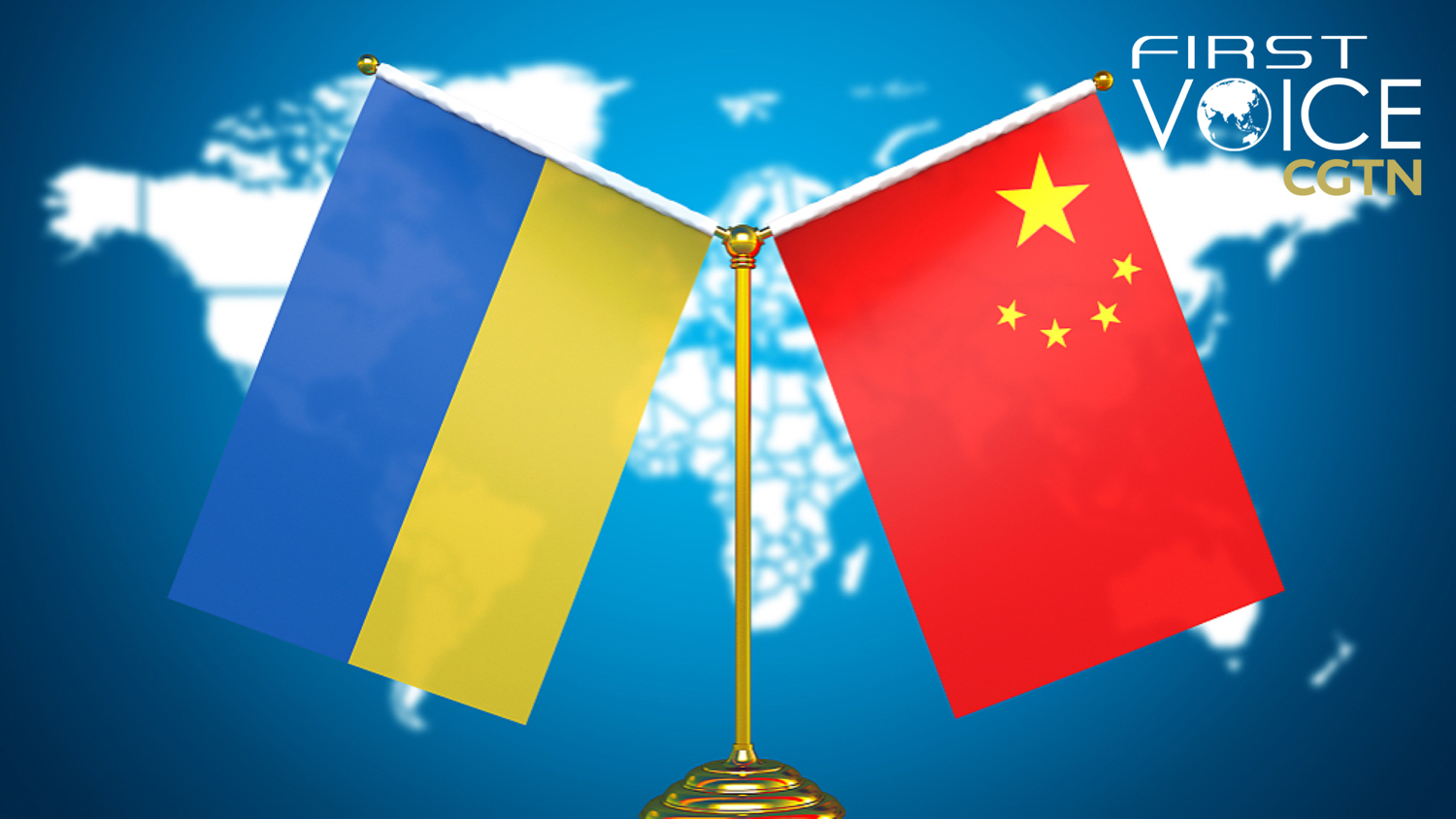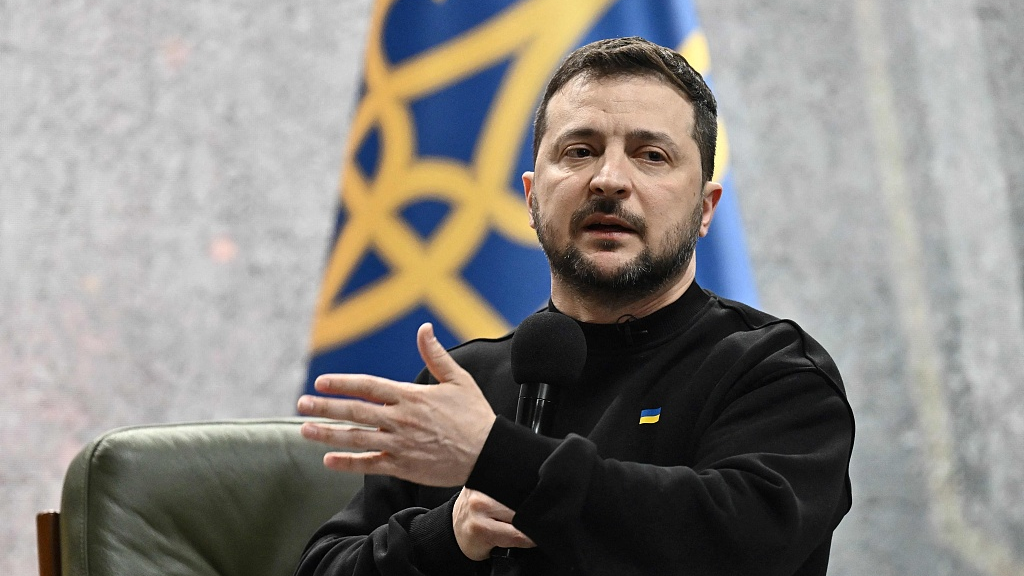
Editor's note: CGTN's First Voice provides instant commentary on breaking stories. The column clarifies emerging issues and better defines the news agenda, offering a Chinese perspective on the latest global events. This First Voice article is written by CGTN Special Commentator Bradley Blankenship, a Prague-based American journalist, political analyst and freelance reporter. The article reflects the author's opinions and not necessarily the views of CGTN.
Chinese President Xi Jinping and Ukrainian President Volodymyr Zelenskyy held a phone call on April 26. According to Zelenskyy, the call was "long and meaningful" and "will give a powerful impetus to the development of our bilateral relations." This call had been anticipated for some time, at least going back to Xi's visit to Moscow with Russian President Vladimir Putin in late March of this year.
I believe that this call is consistent with Beijing's readiness to develop bilateral relations with Ukraine and that both sides can move forward with the principles of mutual respect and sincerity underpinning their dialogue. As it relates to the ongoing Ukraine crisis, which China is helping to mediate, it shows that China has consistently stood on the side of peace and has a genuine desire to facilitate dialogue between opposite sides.
As I explained with regard to a statement by Czech President Petr Pavel, in a piece published on April 26 for CGTN's "First Voice," not only does Beijing and Moscow have a comprehensive strategic partnership, but so too does China and Ukraine. That is because of the two side's deep trade connections, Kyiv's membership in the China-led Belt and Road Initiative (BRI), as well as Beijing's investment in billions of dollars worth of tangible assets in Ukraine.
The truth is that, like virtually everywhere else in the world, China has a deep-seated interest in stable and orderly relations in Eastern Europe. It does not want the conflict to continue in some kind of geopolitical chess match to weaken the West's strategic posturing nor does it want to destroy Ukraine to appease Moscow. China and Ukraine both already benefited greatly from the pre-crisis status quo and it would be illogical to assume Beijing wants to change this.

Ukrainian President Volodymyr Zelenskyy gives a press conference in Kyiv, Ukraine, February 24, 2023. /VCG
Ukrainian President Volodymyr Zelenskyy gives a press conference in Kyiv, Ukraine, February 24, 2023. /VCG
Other countries, however, have shown that they do, in fact, want the conflict to continue. And they, verifiably, have financial interests in seeing it prolong for as long as possible. The most obvious culprit is the United States, which has, according to Statista, a global market share of 40 percent of the global arms trade. Washington's military-industrial complex is making a killing by funneling weapons into Ukraine and keeping the conflict roaring. Meanwhile, defense contractor stocks are soaring to their highest-ever levels.
Washington has a long history of promoting forever wars and the U.S. has only been at peace for roughly two decades of its entire existence spanning several hundred years. It stokes and profits on conflict everywhere around the world. The latest trove of intelligence leaks, which were widely publicized mostly in alternative media last month, suggests that the U.S. has special forces units currently in Ukraine. So, unlike what the administration of U.S. President Joe Biden has been saying, the U.S. is directly involved in the conflict – and is clearly in a proxy conflict meant to weaken Russia's strategic posturing in Europe.
In fact, current and former U.S. officials have been arguing for this long before the beginning of Russia's "special military operation" and the think tank blob has also jumped on board. This is their strategy and the reality, reflected in these leaks, confirms this.
Thankfully, a growing number of countries, like China, Brazil and perhaps even France, are seeing that this conflict is extraordinarily harmful to the European security structure as well as that of the world. That's why China's peace proposal, which I have been arguing for since the very first weeks of the outbreak of the ongoing crisis, is taking hold and gaining traction. The current situation will have no military outcome – at least not one that ensures the continuation of organized human life – and that's why a political solution is so necessary.
The naysayers, on the other hand, who are becoming more and more of a minority, had better reflect on whether juicing their own defense contractors is really worth the complete annihilation of European, or potentially global, society. Basic logic indicates that it is not.
(If you want to contribute and have specific expertise, please contact us at opinions@cgtn.com. Follow @thouse_opinions on Twitter to discover the latest commentaries in the CGTN Opinion Section.)